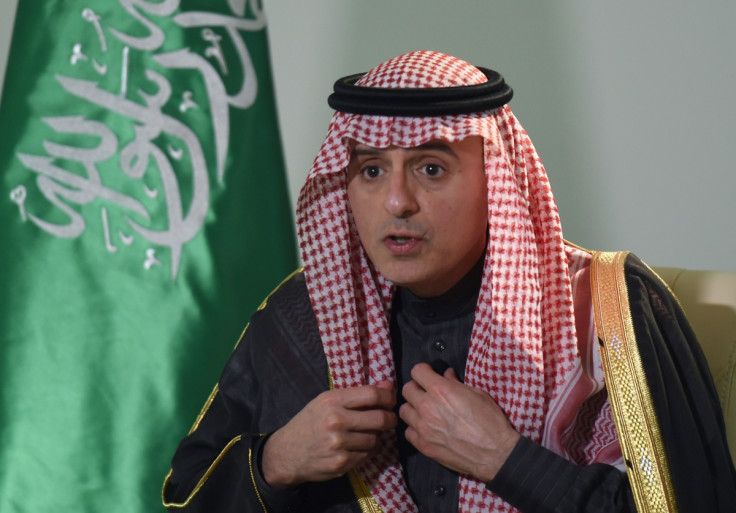Saudi Arabian FM says Syrian rebels should be provided with surface-to-air missiles

Moderate rebel groups should be supplied with surface-to-air missiles to defend themselves against air strikes from the Assad regime and its allies, Saudi Arabian foreign minister Adel al-Jubeir told Der Spiegel.
In recent months, Syrian government forces have driven back rebel groups, supported by intensive air strikes from the Syrian air force and allies Russia. Jubeir said providing rebel groups with rockets would "allow the moderate opposition to be able to neutralize the helicopters and aircraft that are dropping chemicals and have been carpet-bombing them, just like surface-to-air missiles in Afghanistan were able to change the balance of power there.
However, amid concerns that the weapons could fall into the hands of jihadist groups including Isis, Jubeir said: "This has to be studied very carefully, however, because you don't want such weapons to fall into the wrong hands."
The West has so-far not provided Syrian rebel groups with surface-to-air missiles over concerns they could fall into the hands of jihadists.
Since last September, Russia has supported Syria with air strikes from air craft, including S-25 jets, which are capable of providing close support to ground forces, but are vulnerable to Mapads, or shoulder fire surface-to-air missiles.
Nic R. Jenzen-Jones, Director of specialist technical intelligence consultancy Armament Research Services (ARES), told IBTimes UK that the weapons could have a significant impact on the conflict. "The supply of surface-to-air missiles, including man-portable air defence systems (Manpads), to Syrian opposition groups is likely to have significant geopolitical impacts"
"From a technical perspective, the types of Manpads or other SAMs (surface-to-air-missiles) Saudi Arabia would be likely to supply to moderate rebel groups are probably going to be of limited effectiveness against some of the modern Russian combat aircraft operating within Syria," he said.
"They are likely to be legacy missile systems, however they may still post a notable threat to Syrian government aircraft, particularly rotary-wing aircraft."
Russian military helicopters have been filmed hovering at low altitude targetting rebel groups in Kafr Nabudah, Hama. Jenzen-Jones said the weapons could limit the type of air support Russia and Syria could provide for ground operations, forcing them to fly at a higher altitude and slowing advances.
"Opposition forces may gain an advantage from the presence of SAM systems, regardless of the number of aircraft they are capable of successfully engaging. The presence of more or more capable SAM systems may force Syrian and Russian forces to adjust their tactics and limit the air support, particularly helicopter support, available to ground forces", he said.
In February, the Saudis offered to send troops to Syria to combat Islamic State. Peace talks in recent weeks between world powers have been inconclusive, and Russia and the Syrian government have intensified efforts to drive rebel groups from Aleppo.
© Copyright IBTimes 2025. All rights reserved.






















